Table of Contents Show
Have you ever heard of the term “China bombs”? If you’ve been in the RV lifestyle for any time, you’ve probably heard a fellow RVer lament about the China bombs his RV manufacturer put on his brand new rig and how he suffered a surprise tire blowout on the highway.
Unfortunately, this is a reality for many RVers, so let’s look at these China bombs to help you prevent a dangerous accident or costly repairs. Let’s dive in!
What Are China Bombs?
RVers often refer to the standard tires put on by RV manufacturers as China bombs. Usually, they’re made by an off-brand you don’t recognize and likely not made in the United States.
They’re still rated as ST, meaning “special tire,” and designed for heavy loads, but they don’t have the same quality as many big-name brand tires like Goodyear and Cooper.
Where Does the Term “China Bombs” Come From?
Many RVers assume RV manufacturers buy these cheap tires from China. Because they tend to fail more frequently than higher-rated tires made by American brands, RVers have thus nicknamed these standard tires “China bombs.”
Tire blow-outs are more common with manufacturer-issued tires than with Michelin or Bridgestone tires. And they happen without notice. You don’t see signs of wear or reduction in tire pressure. It’s just like a bomb that goes off underneath your RV.
This is also why many RVers immediately change the tires after purchasing an RV. They don’t want to get stranded on the side of the road at the start of their vacation.
They also don’t want to deal with insurance or a high repair bill. Paying hundreds and even thousands of dollars upfront to avoid the inconvenience and cost of when China bomb tires fail is well worth it.
Which RV Tires Are Considered China Bombs?
China bombs aren’t going to have a brand name that you recognize. They may not be made in China, but they’re not made in the United States either. If you see “Made in China” on the sidewall of your RV tires, you might consider exchanging them for higher quality name-brand ones made in the United States or by a top-tier manufacturer.
You’ve spent a lot of money on your RV. You don’t want to deal with damage from a tire blowout because you don’t want to spend more money on new tires.
Plus, you don’t want to cause an accident because pieces of tire have blown into another lane on the interstate. Tire blowouts can cause dangerous situations on the road.
What Are Good Brands for RV Tires?
Goodyear, Michelin, Cooper, Bridgestone, and Continental are some of the top brands of tires you can rely on. However, these companies have plants and headquarters outside the United States.
For example, Bridgestone is a Japanese company, and Michelin is a French company. Goodyear and Cooper are the only two true American-made tires, but if you go with any top-tier brands, you can keep everyone else safer on the roads.
Where Can You Buy RV Tires?
You can buy RV tires at numerous locations. Walmart, Costco, Camping World, and other large chains sell tires that can handle heavy loads.
You can also go directly to a brand’s website and select “locate a dealer” to find shops that carry that brand. Shops that work on large vehicles like dump trucks and semi-trucks will also carry tires rated for heavy loads.
Make sure you know what load rating you need. You need enough tire to handle the weight of your RV. Also, know the speed rating for the tires you put on. If the cap is at 65 miles per hour, always adhere to that speed.
Most RV tires by the top-tier brands will have ratings for over 70 miles per hour. That doesn’t mean you should travel that fast on the interstate, but you don’t have to worry so much about staying under a certain speed to prevent a tire blowout.
Pro Tip: Before you buy your next set of RV tires, check out our Ultimate RV Tire Guide
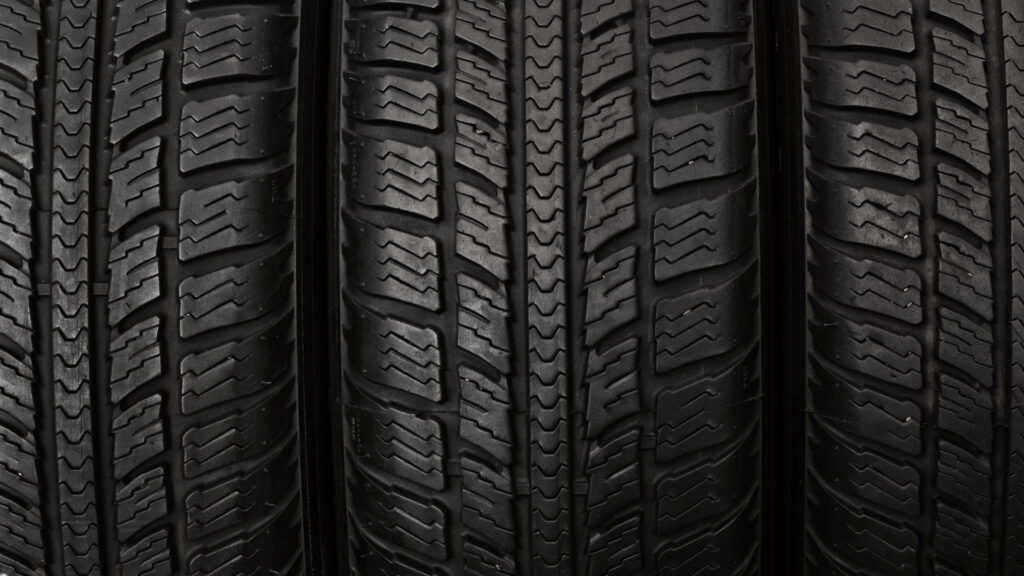
Tips for Properly Maintaining Your RV Tires
No matter what brand of tire you have — whether it’s China bomb tires or not — you can’t prevent tire blowouts 100%. But you can perform important maintenance tasks to care for your RV tires properly. Following these tips will decrease your chances of having a tire problem.
Use a Tire Pressure Monitoring System
A tire pressure monitoring system (TPMS) allows you to monitor your tire pressure and temperature. You can keep an eye on these numbers when driving down the interstate.
If one tire is much lower or hotter than the others, pull over and check it out. If a tire leaks, the TPMS should recognize it and alert you before it blows.
However, like most products, these systems aren’t 100% accurate. But you’re better off with one than without.
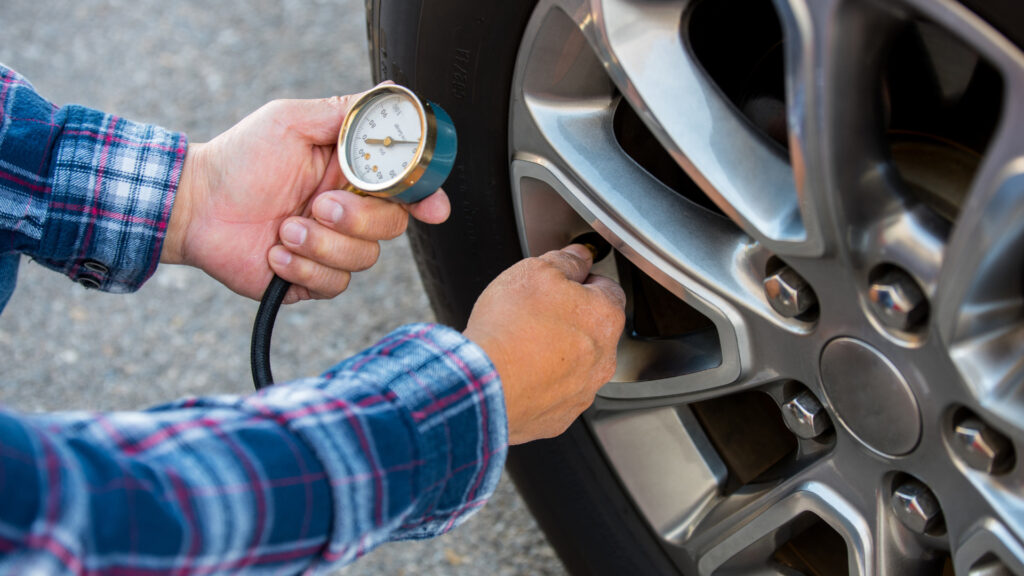
Don’t Overload Your RV
Many tire blowouts occur because the RV owner has overloaded the RV. This is no fault of the tires, whether China bombs or not. Always remain under the RV’s gross vehicle weight rating (GVWR).
The axles, frame, and tires can only handle a certain amount of weight. You put yourself at risk if you overload your rig.
Also, even if you stay under the GVWR, manage your weight from side to side and front to back. If you have 10,000 pounds on the left side and only 7,000 on the right, you’ll put a lot of stress on the left side tires. Try to disperse the weight evenly throughout the RV as much as possible.
Drive a Safe Speed Limit
As already mentioned, tires are only rated for certain speeds. China bomb tires are notorious for only having a speed rating of 65 miles per hour.
If you travel at 65 for long periods, you’ll push the maximum rating, which could result in premature wear and tear or a dangerous blowout due to the increased tire pressure.
Higher quality tires from Goodyear or Cooper will give you a higher speed rating, so you can feel much safer driving at 65 MPH for an entire day.
Choose the Right Load Rating
You must weigh your RV and note the GVWR before purchasing RV tires. Tires have specific load ratings. For example, if your RV has a GVWR of 10,000 pounds, you want a tire rated to handle more than that weight.
Your tire size may be the same as someone who owns a trailer that only weighs 8,000 pounds, but the load rating has to be higher.
For example, a load rating of F means the tire can handle up to 3,960 pounds. If you have a double-axle trailer, it may have a maximum load of around 16,000 pounds.
Your GVWR should be at least 20% below 16,000 pounds to travel safely. If you have a 16,000-pound fifth wheel, you’ll want to go up to a load rating of G for your RV tires.
Keep in Mind: You should never drive with a flat tire, but what actually happens if you do drive with a Flat Tire?
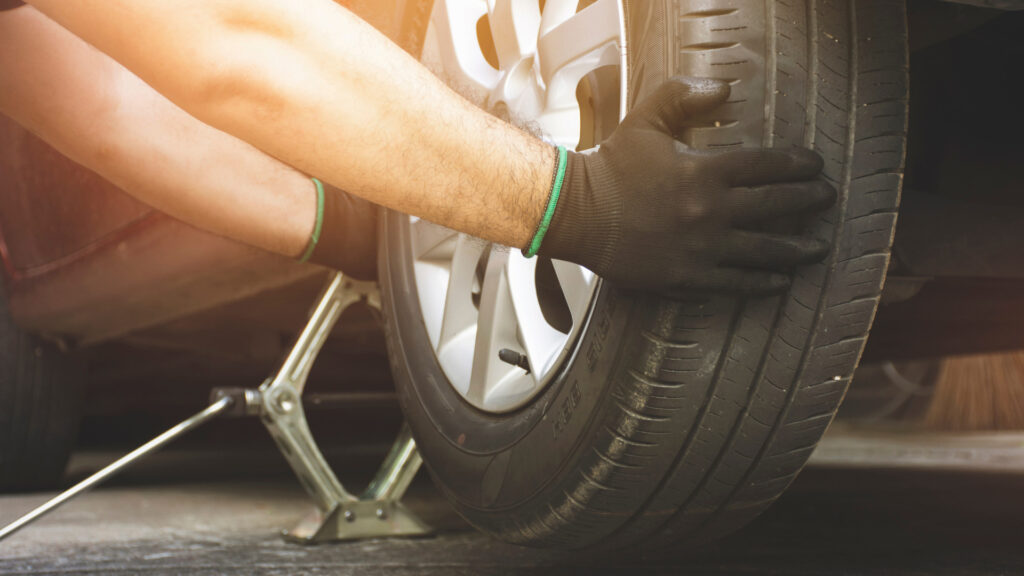
Inspect RV Tires Often
Whether your RV tires are China bombs or not, you should regularly inspect them. This means looking for signs of wear or objects that might have gotten lodged and checking the lug nuts.
If you see a loss in tread depth or uneven tire wear, get new tires. If your tires have cracks, that’s a sign of dry rot, and you should immediately replace them. This can happen if you haven’t changed your RV tires in many years or have left your RV in storage for a long time.
Replace RV Tires Every 5 Years
You want to replace your RV tires at least every five years. However, this number somewhat depends on the miles you travel.
Full-timers will likely replace tires sooner. Weekend travelers may go longer. Finally, always check the date code when purchasing new tires. Although they may be new, they may still be a year old.
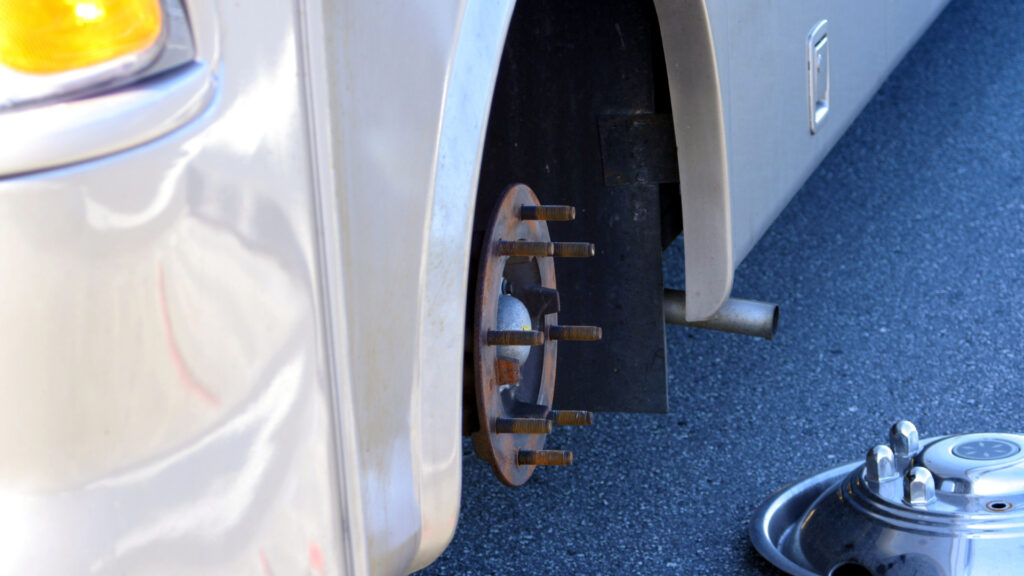
Always Use Tire Covers When Parked
If you’re parked longer than a weekend, you need to have tire covers. These covers prevent sun damage. The UV light hits your tires and causes cracks, resulting in a slow air leak. So, always use tire covers if you stay at a location for a week or longer or put your RV in storage.
Don’t Save Money With Low-Quality China Bombs; Go for Safety Instead
Everyone has a budget. But don’t try to save a few bucks on tires. It’s well worth spending more money on high-quality tires than risking the dangers of cheaper China bombs.
You may be one of the lucky ones who never experience a blowout. But is saving some money initially worth the inconvenience and cost later? Or even worse, is saving some money worth the risk of a potential accident due to a tire blowout?
Regardless of the brand of tire you purchase, always keep up with the maintenance. Have a log to track changes in the tires and dates of inspection. And start saving money for the replacement tires you’ll eventually need.
Have you ever experienced a tire blowout?




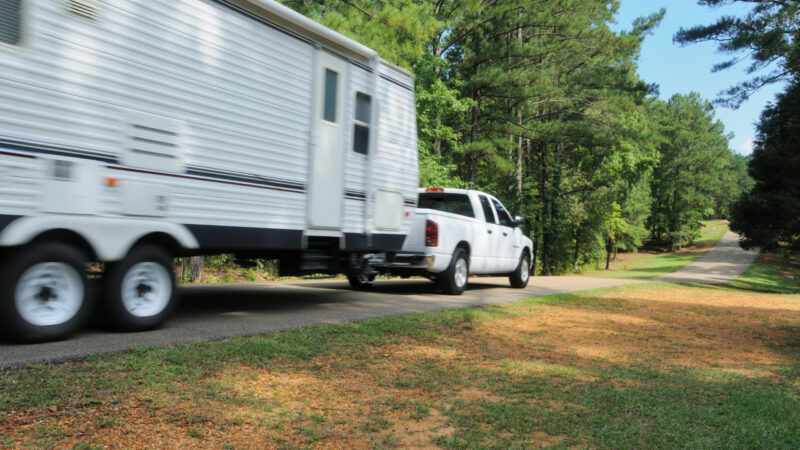

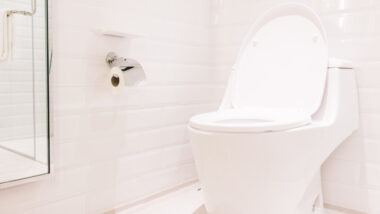
My China bombs were Goodyear Marathons made in China. Looked like a recap coming apart.
On our first camper we had a blowout that caused over $5000 in damage. Lesson learned . Bought a new camper two years ago and one of the first things we bought for it was good tires.